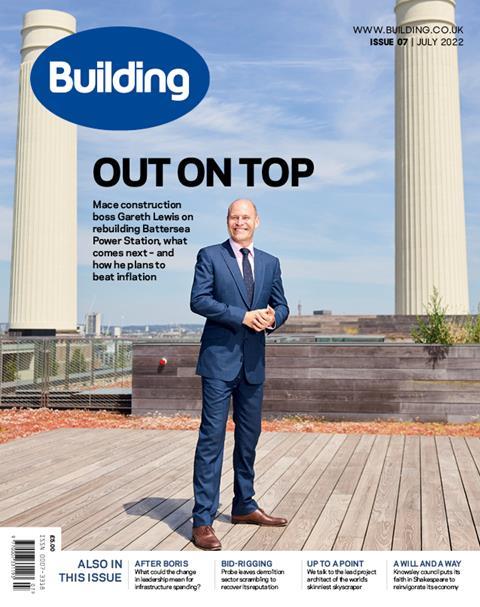The Tory leadership contest is an unwelcome hiatus at a time when vital decisions need making for the country’s future
This should have been the week Boris Johnson and Rishi Sunak unveiled a shiny new economic policy to address the many serious challenges facing this country. Those challenges are as real as ever but you will never hear their joint statement – perhaps the speech writers are relieved at being spared such a tough task given that the PM and the former chancellor clearly disagreed profoundly on the way forward.
Instead, we had Sunak’s dramatic resignation which partly triggered last week’s political crisis and all the chaos that ensued. We had the sudden exodus of ministers and the hasty scrambling together of a caretaker administration, and now we have to wait while the leadership contest plays out, an unwelcome hiatus at a time when the country needs strong leadership and decisions made.

And businesses have decisions to make too, whether it is to launch a new project, make an investment or hire more people. But faced with unrelenting inflationary pressures and sluggish economic growth, it is hardly surprising many are holding back. Last month the British Chambers of Commerce downgraded its forecast for business investment for this year to 1.8%; previously it had been 3.5%.
Over the past week I’ve heard a lot of business leaders, from all sectors, point out that one of the achievements of the Johnson government was that it came up with a plan to get businesses through covid. Many feel that the headwinds they face today pose an equal threat to their survival but it will not be until the autumn that we get any clear strategy from government.
>>Also read: Gareth Lewis interview: how Mace is weathering the economic storm
>>Also read: Infrastructure update: energy transition
>> How construction can save the world
Of course, smaller businesses are hurting the most, and there are already understandable calls for lowering taxes to help the hard pressed. Well-targeted relief for those at the sharp end is undoubtedly needed, but we should be careful what we wish for when it comes to tax and spending policies. It may not have felt like it, but as Simon Rawlinson points out, the Johnson premiership was one of relative largesse when it came to big-ticket construction projects, and many firms could be exposed if we are about to see that clawed back by the next PM. Certainly most of the candidates for the job – though not Sunak, unsurprisingly – are backing tax cuts as their response to the cost‑of-living crisis.
But actually the bigger message from Rawlinson and from Mark Farmer, another columnist in this month’s issue, is that while we can get caught up in the current political turmoil, we would do well to keep our eyes on the long game. Yes, businesses have to be prepared for the external shocks that come with alarming regularity, but collectively we also all face an even bigger and longer-term existential threat: the climate and biodiversity crisis.
What can be done in this moment of limbo as politicians jostle for power? Well, quite a lot actually
Johnson’s rhetoric on net zero far outweighed his achievements, but still he did recognise the importance of decarbonising the economy and that led to the Net Zero Strategy in the run-up to COP26. It was a start, but only that. A progress report by the Climate Change Committee last month pointed to failures in the strategy – not insulating existing homes was a big one – and said the UK is not on course to meet its 2050 net zero target.
So while government has been good at setting targets, it has been pretty bad at implementing policies to deliver them. And so the race should be on for ministers to plug the gaps in their strategy, but is it? Clearly not at the moment, given everything else that is going on.
And there isn’t even agreement among politicians that urgency is required. Take the Conservatives’ Net Zero Scrutiny Group under arch-Brexiteer Steve Baker. The group, which has close links to the Global Warming Policy Foundation – which published a report in April claiming that there was “no evidence of a climate crisis” – was set up to scrutinise policies aimed at tackling climate change, seeing them as a regulatory burden on businesses. This is just one faction of one political party, but it does have influence and it is easy to imagine whoever becomes the next prime minister will be under enormous pressure to be seen to tackle immediate cost-of-living issues first and foremost.
Certainly, there is little sign that any of the leadership contenders see the environment as a priority – as Zac Goldsmith, the climate minister who was elevated to the Lords by Johnson, tweeted last week: “Most of the likely contenders [for leadership] are people who, on the whole, couldn’t give a shit about climate and nature.”
So what can be done in this moment of limbo as politicians jostle for power? Well, quite a lot actually. This is the perfect time to be talking about your net zero work, to be demonstrating on your projects that it is possible to drive out carbon and reduce energy bills, to be promoting construction’s green jobs to the next generation.
But talk has to be backed up with real action. Only last week the chair of the Environment Agency warned corporate greenwashing is setting us all back. Frankly, there are too many companies pretending to be greener than they are, creating false confidence that collectively we are capable of addressing the causes of the climate crisis. Such deception will waste valuable time, when what this country is crying out for in business as in politics is transparency and accountability.
Chloë McCulloch is the editor of Building


























